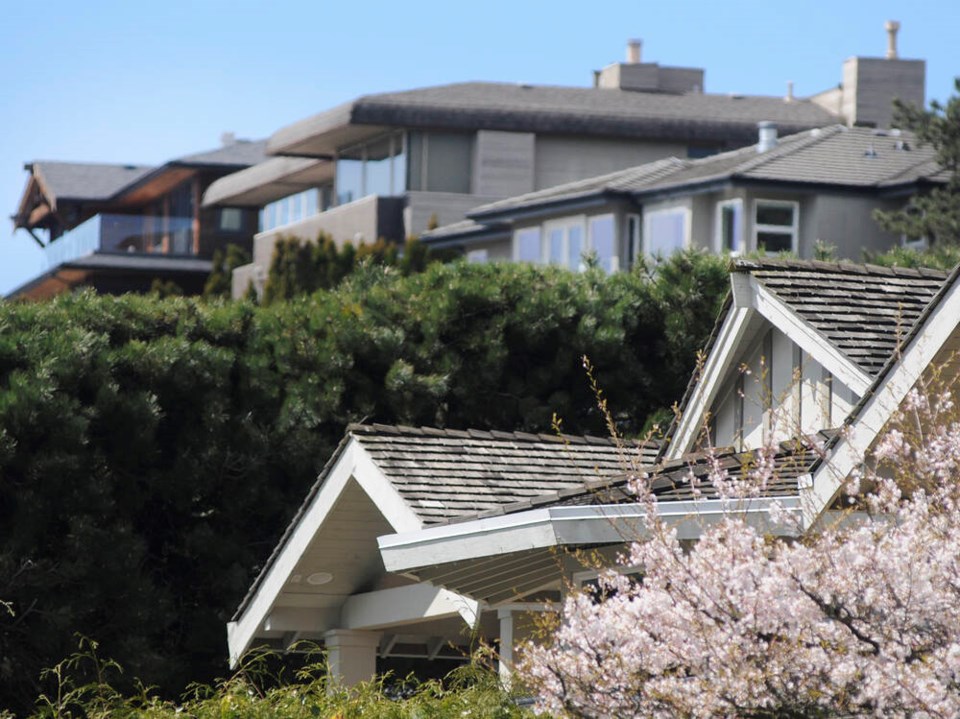Property owners in West Vancouver paid $6.58 million to the province in speculation and vacancy tax in 2021, according to the recent figures released by the Ministry of Finance.
That’s the third-highest amount of the tax paid by any municipality in the province, according to the recent provincial report, despite having a population one-quarter to one-tenth the size of other top-paying communities.
Only Vancouver (where property owners paid over $19 million in the tax) and Richmond (where owners paid over $7.35 million) pay more in speculation and vacancy tax.
West Vancouver owners pay even more than owners in Surrey, where taxpayers forked over more than $6 million.
Unlike some of those larger communities, in the District of West Vancouver the tax is being paid by owners of relatively few properties.
Small number of property owners pay large amount of SVT
Just 146 properties out of over 15,500 in West Vancouver are being assessed the speculation and vacancy tax, compared to larger municipalities, where owners of between 520 and 860 properties paid the tax in each.
That means the average bill for that tax in West Vancouver – where assessments are among the highest in the country and more single-family homes are being assessed the tax – is significantly higher.
West Vancouver Mayor Mark Sager this week said he's not sure the tax is actually helping to deter owners from leaving their homes empty. Sager said the best estimate by the municipality – which uses different methods to assess whether homes are empty – is up to 1,500 homes are sitting unoccupied in West Vancouver.
According to the province, 1,365 homes which were empty in West Vancouver were granted exemption to the tax for reasons ranging from renovations in progress, to rental restrictions to a property being recently acquired or inherited.
"Obviously, it's in everyone's interests to have homes occupied. Nobody wants empty homes," said Sager. "It kills the energy in the neighbourhood."
The tax was introduced by the NDP government in 2018 as a way of raising money for affordable housing projects as well as giving owners an incentive not to leave secondary homes sitting empty. The tax was also intended as a disincentive to foreign owners buying up real estate for investment purposes only.
Foreign owners pay most tax
In West Vancouver, foreign owners, satellite families (where some members of a family live locally but the breadwinner is typically based abroad) and ownership involving a mix of those – including those who hadn’t declared ownership status – accounted for roughly 60 per cent of those paying the tax.
They also paid the lion’s share of the dollar amount for speculation and vacancy tax assessed in West Vancouver: $5.66 million.
The tax paid by foreigners and satellite families is assessed at a rate of two per cent compared to 0.5 per cent for Canadian citizens and permanent residents.
But 44 B.C. residents and eight other Canadian residents also paid the tax in West Vancouver.
As in past years, about one per cent of all properties in West Vancouver were assessed the speculation and vacancy tax, a percentage that’s higher than in Richmond, Vancouver or Surrey.
According to ministry figures, about nine per cent of homes in West Vancouver have some kind of foreign ownership.
Despite the amount paid by West Vancouver homeowners, a vast majority of the residential properties in West Vancouver qualified for an exemption to the tax, according to the ministry.
The biggest category for exemption was owners who were occupying the home as a principal residence. The second biggest exemption category was for homes being rented to long-term tenants.
Sager, like members of the previous West Vancouver council, said he'd like to see more of the tax returned to West Vancouver in the form of provincial support for housing initiatives.
Far less SVT paid in North Vancouver
Elsewhere on the North Shore there was far less of the speculation and vacancy tax paid by property owners.
In the District of North Vancouver, just 86 owners of non-exempt properties paid about $852,000 in the tax. Of about 28,594 residential properties in the District of North Vancouver, foreign owners, satellite families, corporations or a combination of owners owned 979 properties.
In the City of North Vancouver, 76 owners of non-exempt properties paid about $604,000 in the tax. Foreign owners, satellite families, corporations or a combination of owners owned a total of 945 city properties.
According to the government, revenue received from the tax for the 2021 tax year was about $78.4 million province wide, slightly less than the $80 million forecast.
The province announced this week it will expand the speculation and vacancy tax to several additional areas. Closest to the North Shore, Squamish and Lions Bay will now be included in the taxable area. Other areas being added include Duncan, Ladysmith, Lake Cowichan and North Cowichan on Vancouver Island.



